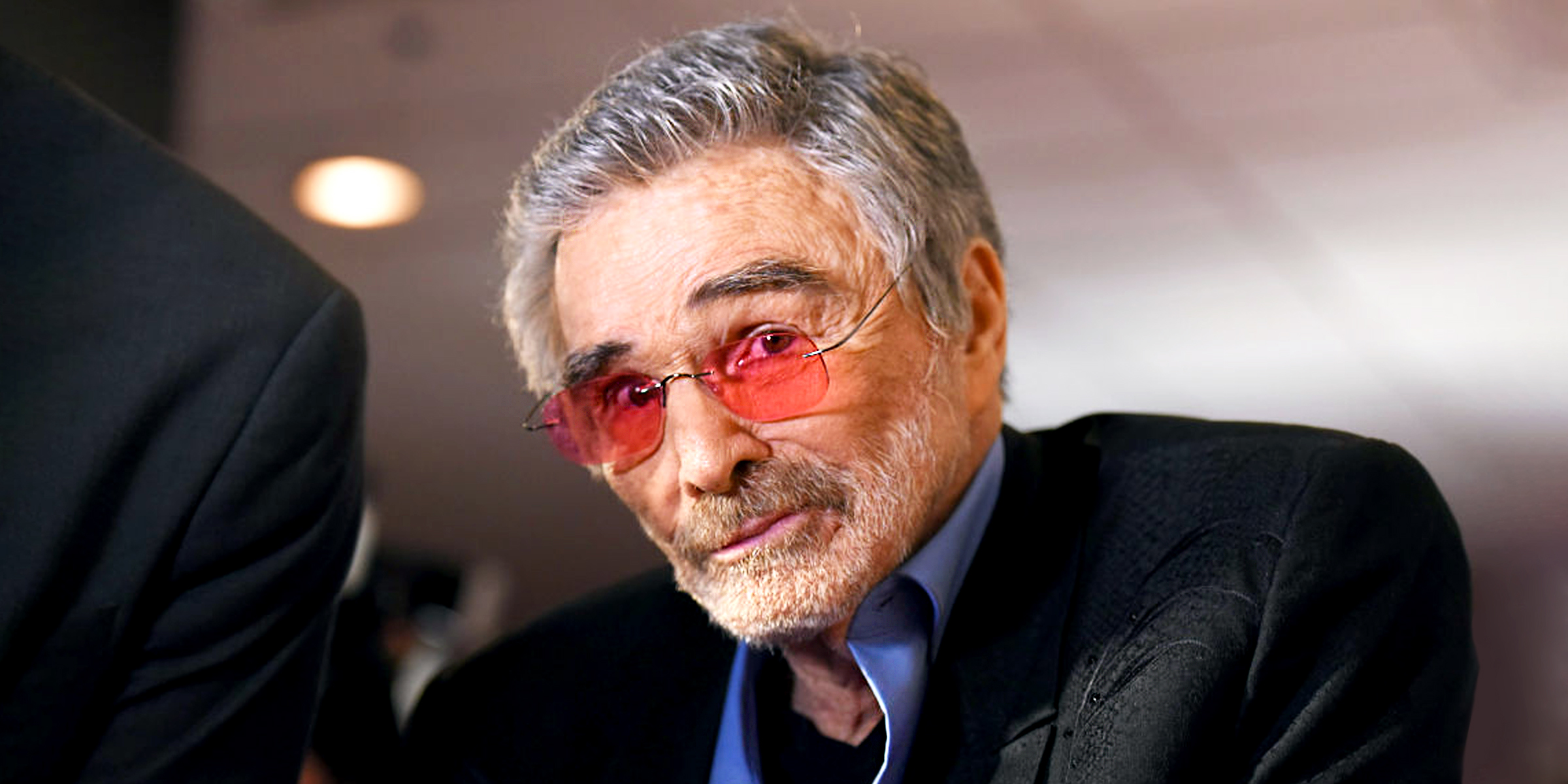When the late Burt Reynolds’ will was revealed, it shocked fans and industry insiders. Known for his love and pride in his only son, Reynolds’ decision to leave him out of his will spurred widespread curiosity. What could have led the beloved star to make such a surprising choice regarding his estate?
Burt Reynolds was as complex as he was charming, with a life that blended Hollywood stardom with personal challenges. Known for his larger-than-life persona, Burt’s off-screen decisions often invited as much intrigue as his on-screen roles.
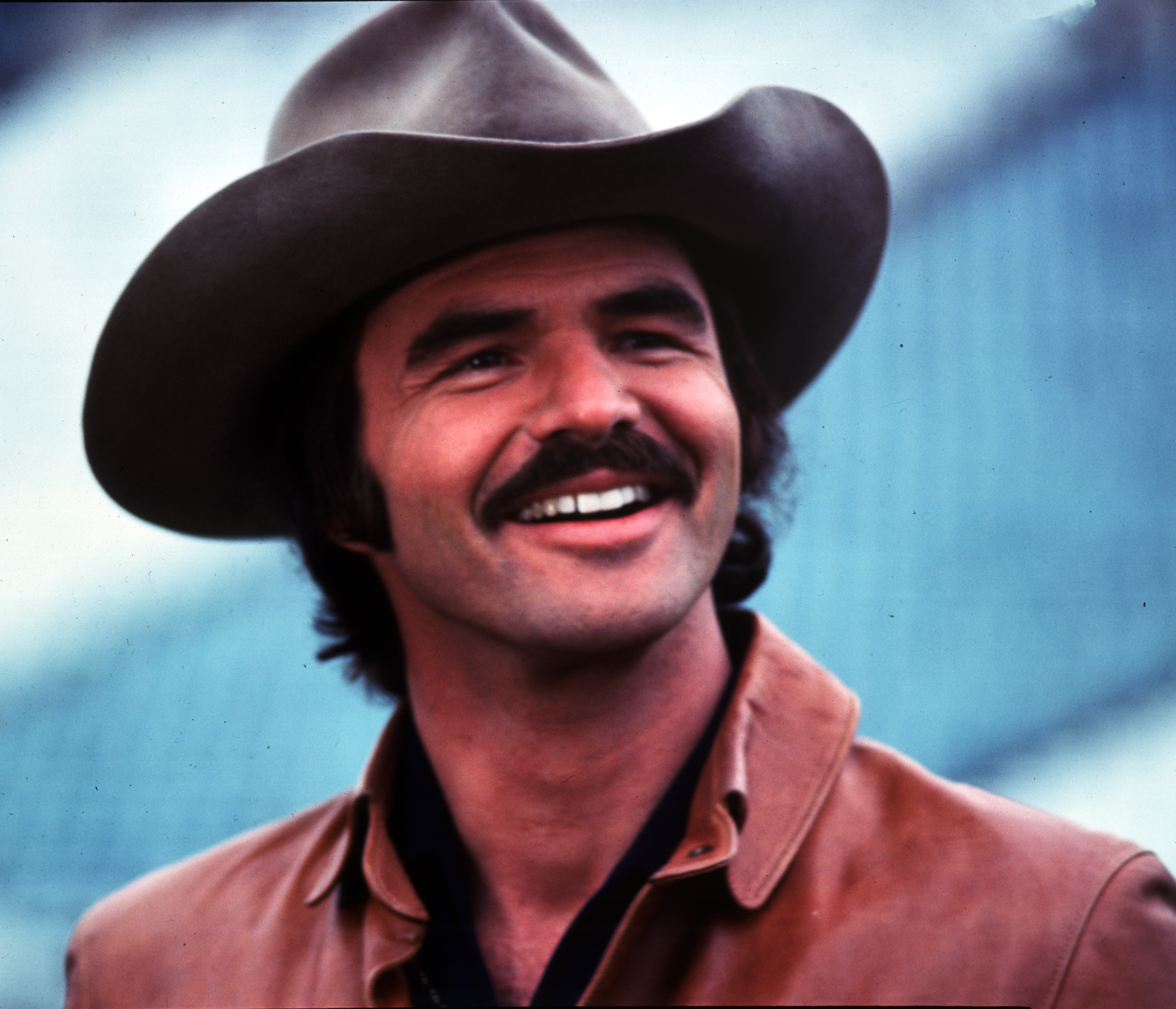
Burt Reynolds photographed in 1960 | Source: Getty Images
Even in his final years, Reynolds remained a complex figure—balancing family, financial struggles, and the desire to protect what mattered most to him. The choices he made about his estate reflect more than just legalities; they offer a glimpse into the man behind the fame.
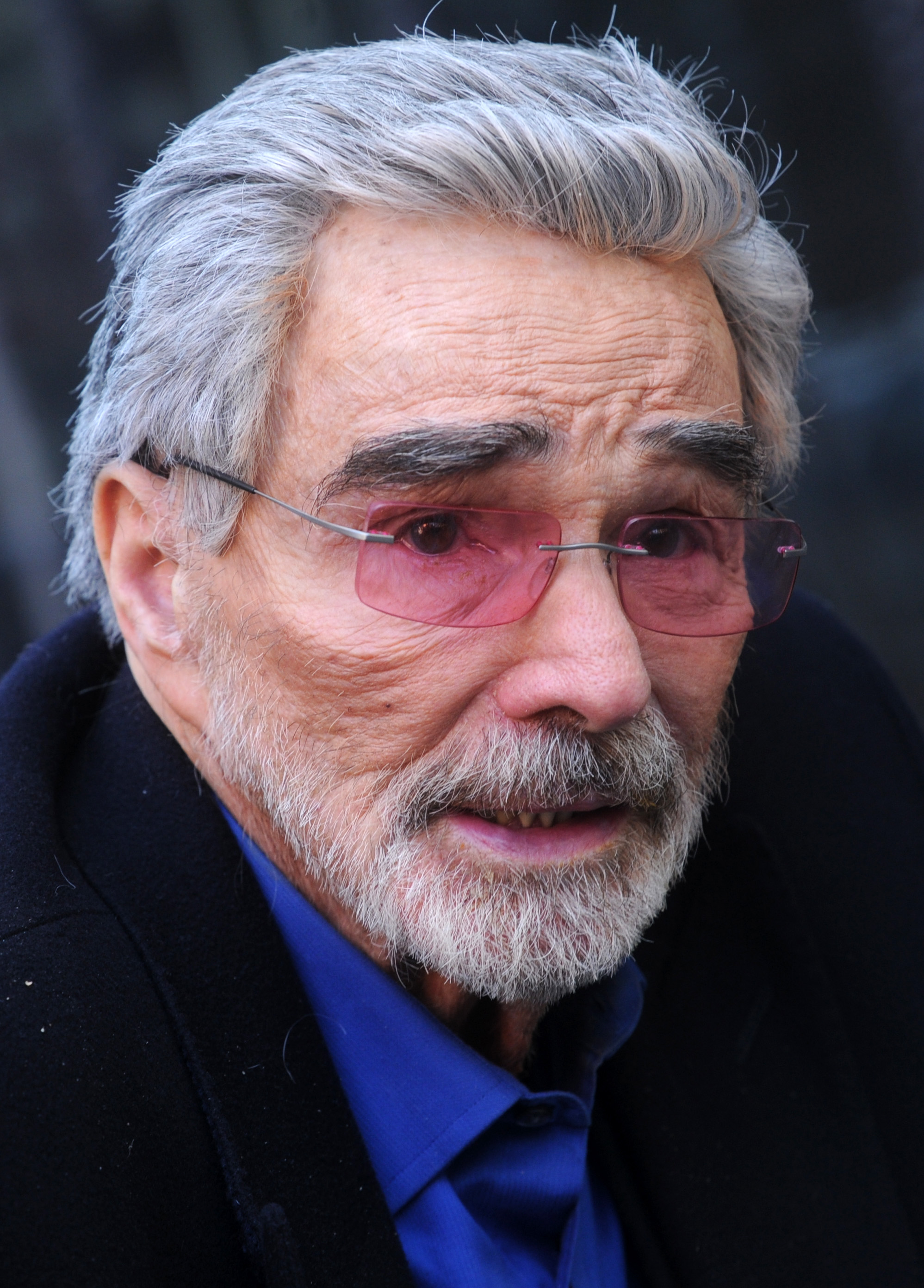
Burt Reynolds in New York in 2018 | Source: Getty Images
A Legendary Life with a Twist
Burt was the embodiment of Hollywood charisma, charming fans for more than half a century with his wit, swagger, and talent. Famously involved with actress
Sally Field
, his career spanned hit films like “Smokey and the Bandit” and television appearances. Burt earned himself a reputation as one of the most captivating stars of the 1970s and 1980s.
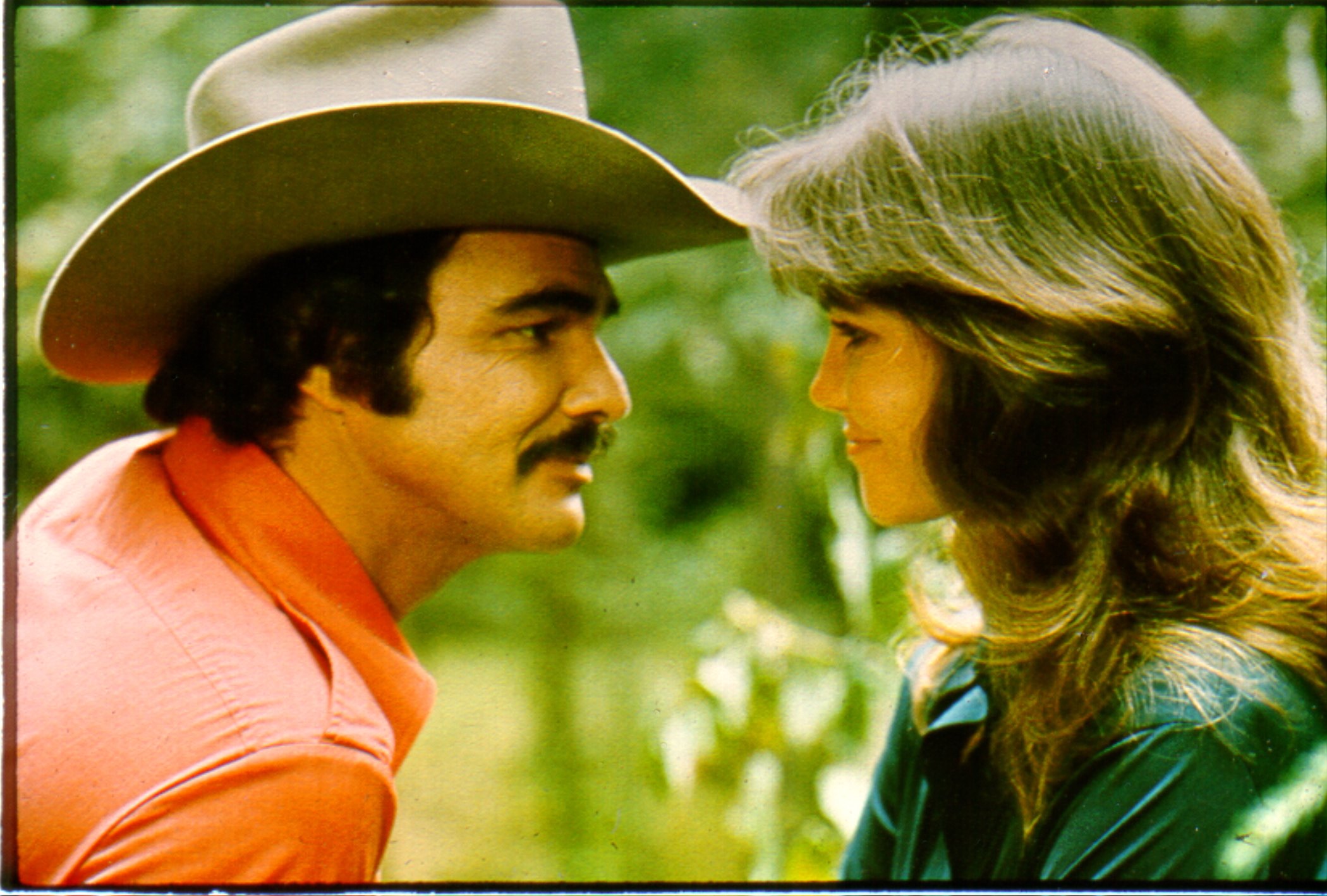
Burt Reynolds and Sally Field in “Smokey and the Bandit” in 1977 | Source: Getty Images
However, in his later years, he faced physical challenges. In 2013, he was admitted to intensive care with flu-related complications, including dehydration. But even with the health challenges, his passion for acting never wavered.
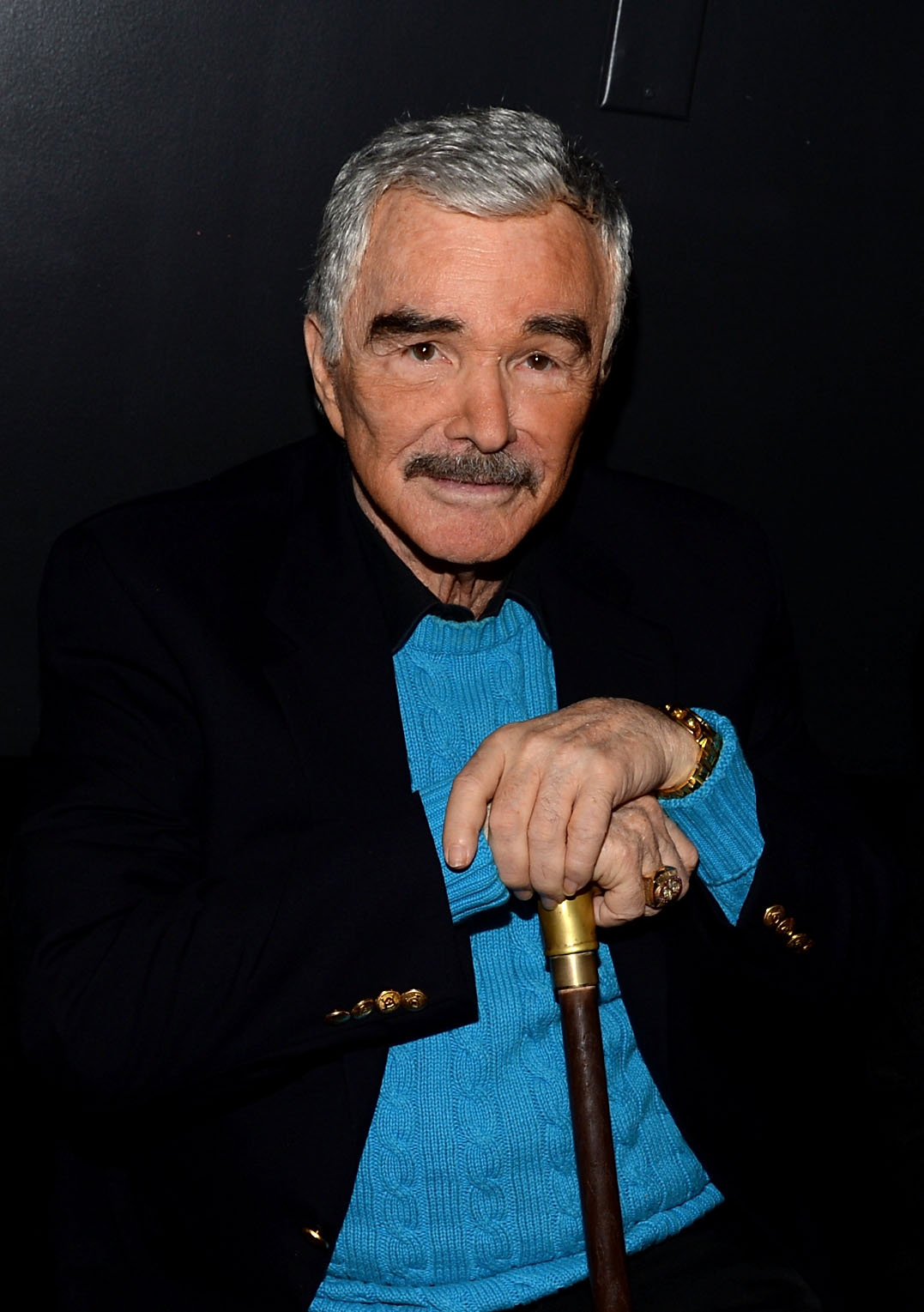
Burt Reynolds at TCL Chinese Theatre on April 27, 2013, in Los Angeles, California | Source: Getty Images
Burt was a man who had always pushed himself physically to deliver performances that felt authentic. His niece, Nancy Lee Hess,
reflected
on her uncle’s strength, “He was tough. Anyone who breaks their tailbone on a river and finishes the movie is tough. And that’s who he was.”
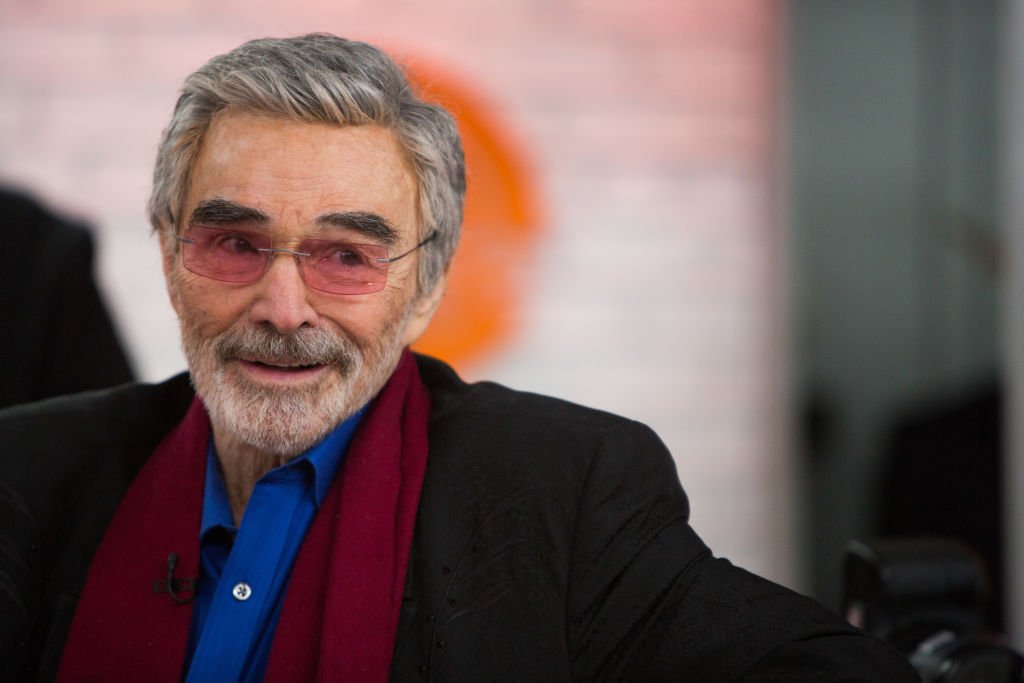
Burt Reynolds visits the “Today Show” on March 15, 2018 | Source: Getty Images
The physical demands on his body, though, later caught up with him.”I did all my own stunts, which is why I can’t walk now,” he had
explained
during a 2015 interview.
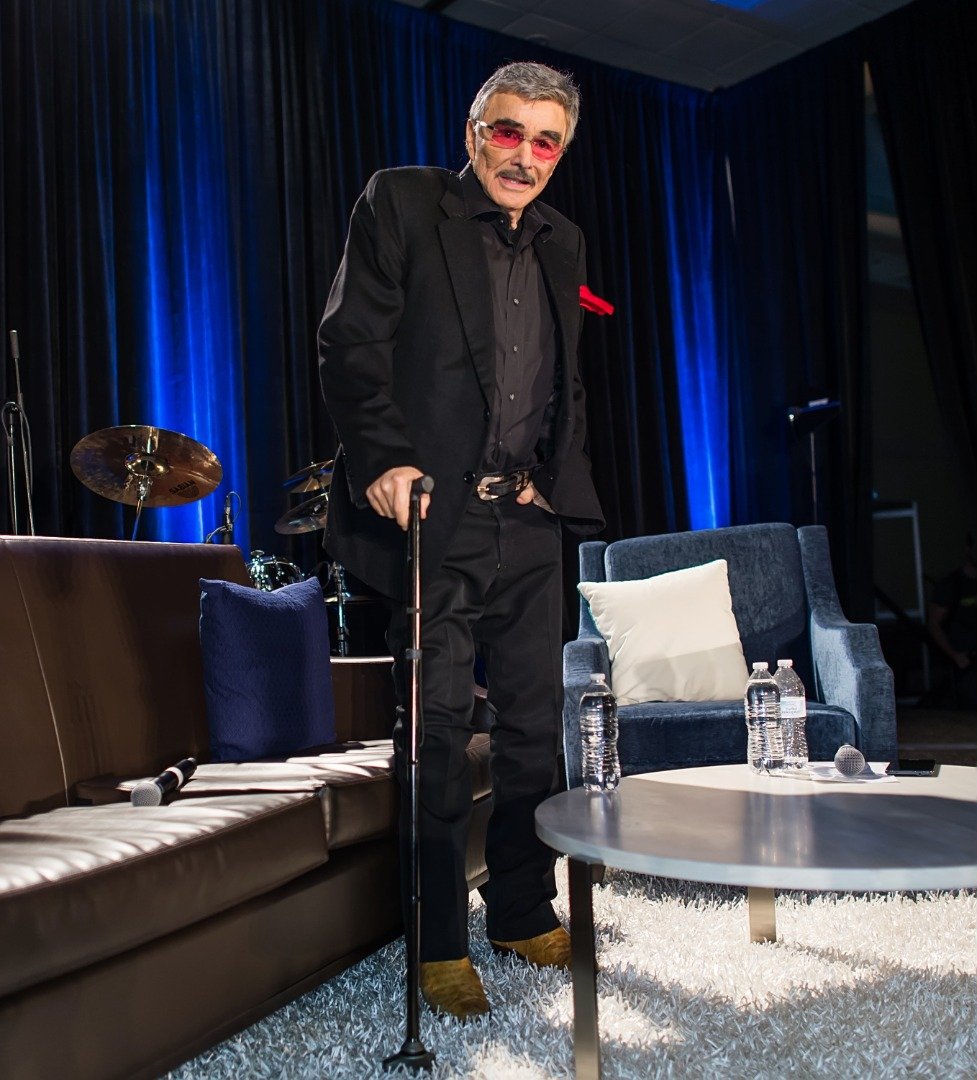
Burt Reynolds at Donald E. Stephens Convention Center on August 22, 2015 | Source: Getty Images
As his health declined, he was frequently seen relying on a cane, including at his last major public appearance at the 2017 Tribeca Film Festival. Despite these setbacks, Burt remained optimistic. Just before his passing, he was eagerly anticipating a new role in Quentin Tarantino’s “Once Upon a Time in Hollywood.”
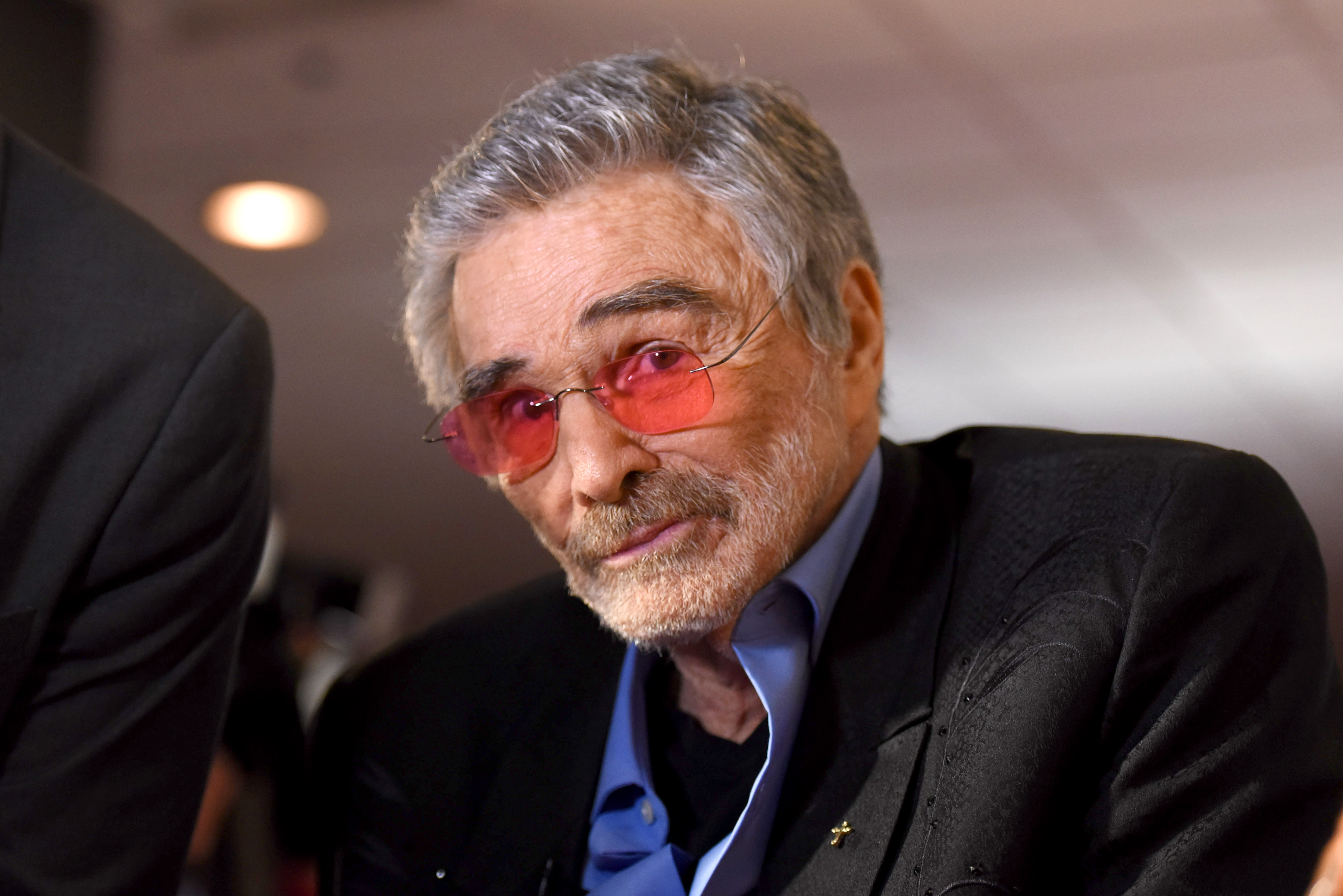
Burt Reynolds during 2017 Tribeca Film Festival in New York City on April 22, 2017 | Source: Getty Images
Burt Reynolds and the Cost of Fame: Financial Troubles and Divorce Battles
For all his Hollywood success,
Burt struggled with money
throughout his life. Despite earning millions from blockbuster films and television roles, he openly admitted to poor financial management. “I’ve lost more money than is possible because I just haven’t watched it,” he
reflected
candidly.
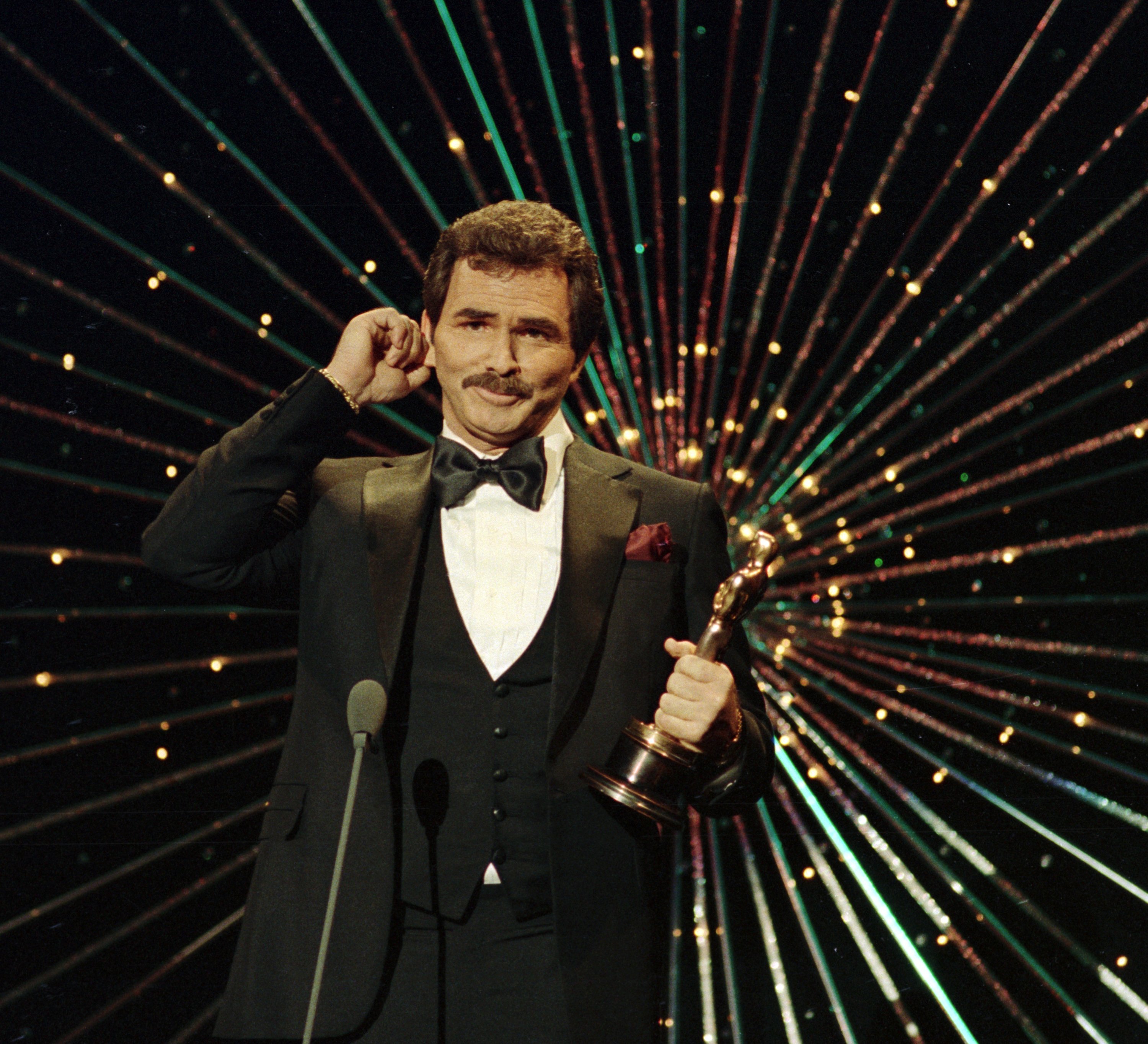
Burt Reynolds during the “Hollywood 100th Birthday” celebration, on April 26, 1987 | Source: Getty Images
“I’ve still done well in terms of owning property and things like that. But I haven’t been somebody who’s been smart about his money. There are a couple of actors who are quite brilliant with the way they’ve handled their money,” he
added
with a grin, “but they’re not very good actors.”
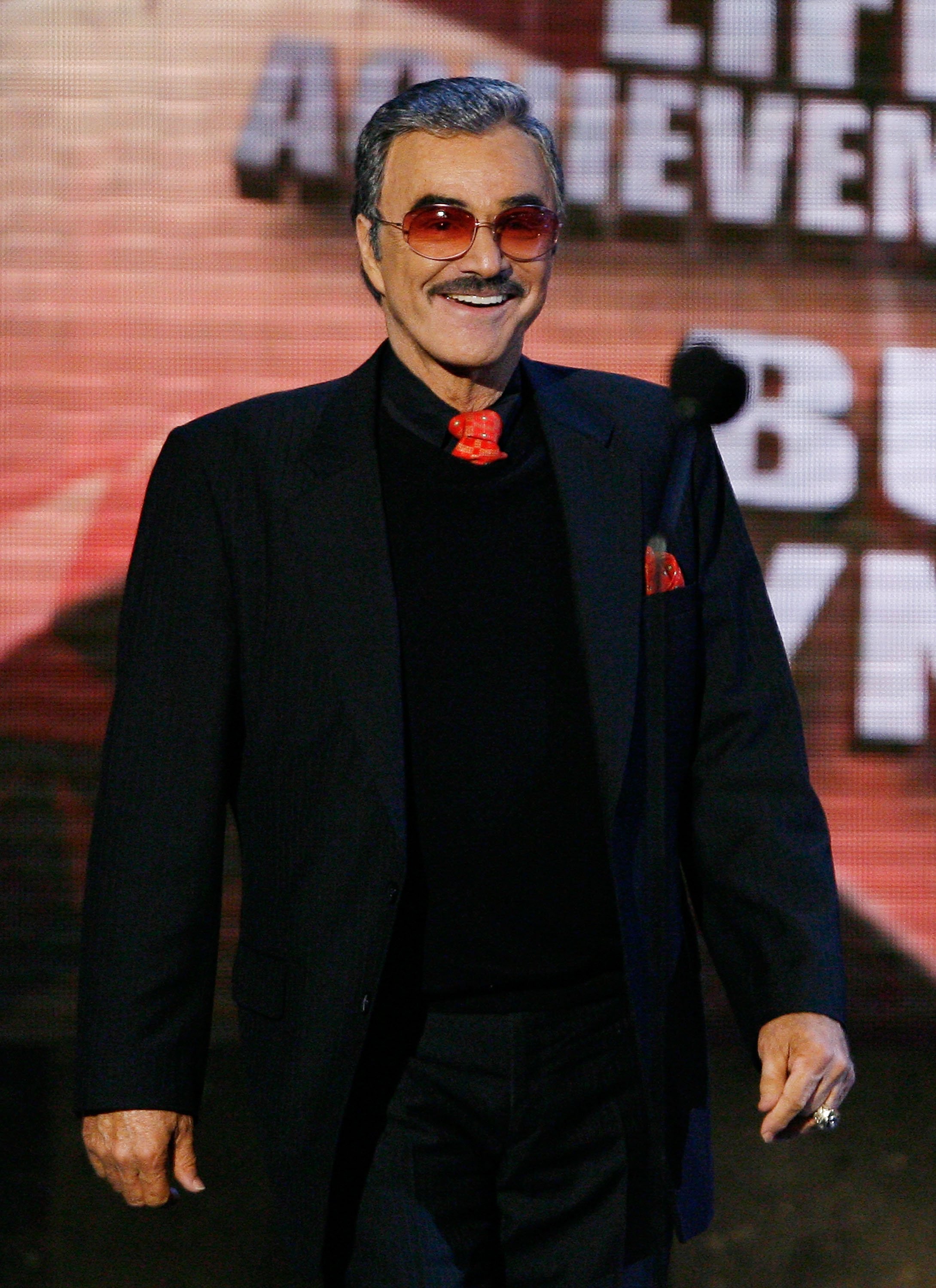
Burt Reynolds during the 7th Annual Taurus World Stunt Awards on May 20, 2007 | Source: Getty Images
Burt’s financial problems were compounded by his public and costly divorce from actress Loni Anderson. Filed in 1993, the divorce became a drawn-out legal battle that stretched over two decades. As part of the settlement, Burt was required to pay substantial alimony and child support, including a
$15,000 monthly payment
for their son.
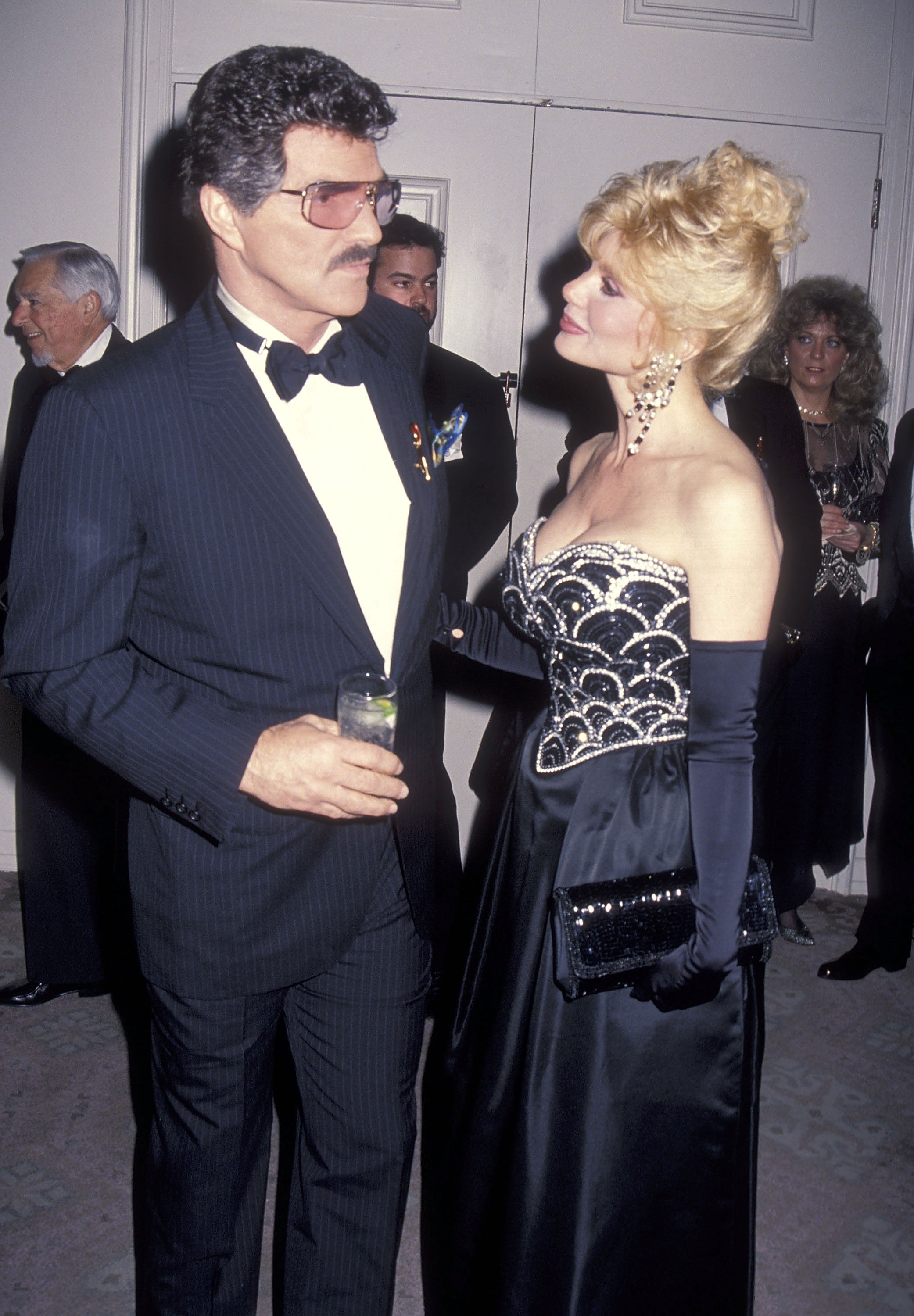
Burt Reynolds and Loni Anderson attend the Friars Club of California’s 14th Annual Lifetime Achievement Award on March 28, 1993 in Beverly Hills, California | Source: Getty Images
In 1994, his accountant testified that Burt was deeply in debt, struggling with bad investments, and falling behind on multiple loans. The financial burden of the divorce alone amounted to $47,000 per month, further aggravating his already precarious situation.
Burt also bought Loni a house as part of their settlement but often struggled to keep up with the $9,000 monthly mortgage. Unable to keep pace with mounting debts, he declared bankruptcy in 1996. His financial troubles worsened with IRS entanglements and forced auctions of his prized belongings, including memorabilia from his acting career.
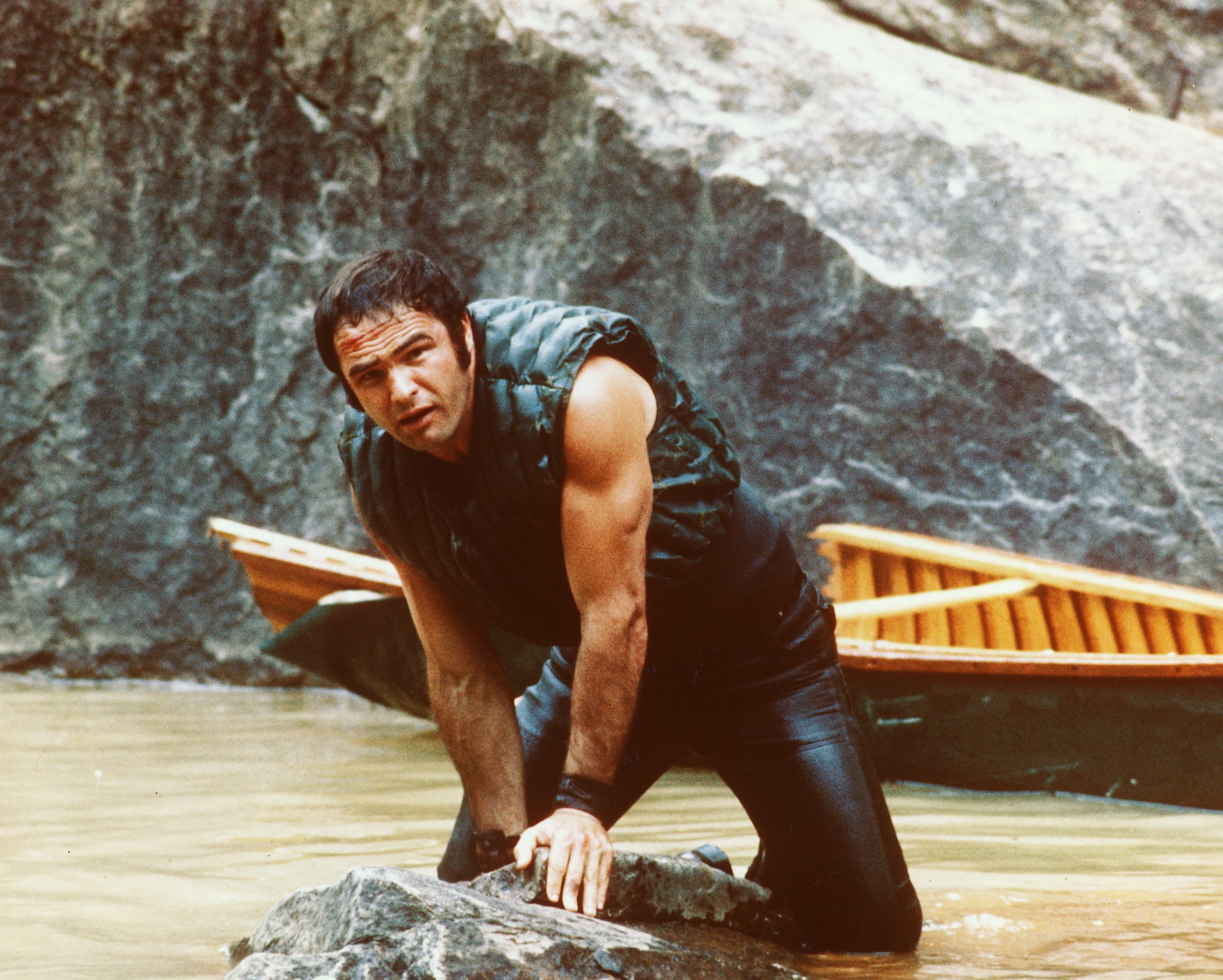
Burt Reynolds during a scene from the film, “Deliverance,” in 1972 | Source: Getty Images
After two decades of back-and-forth legal battles, Burt finally closed the chapter on his divorce from Loni in 2015. He paid the final
settlement of $154,520
, a far cry from the fortune he once commanded. Despite the financial strain, Burt often expressed that the hardest part of the divorce wasn’t the money—it was losing custody of his son.
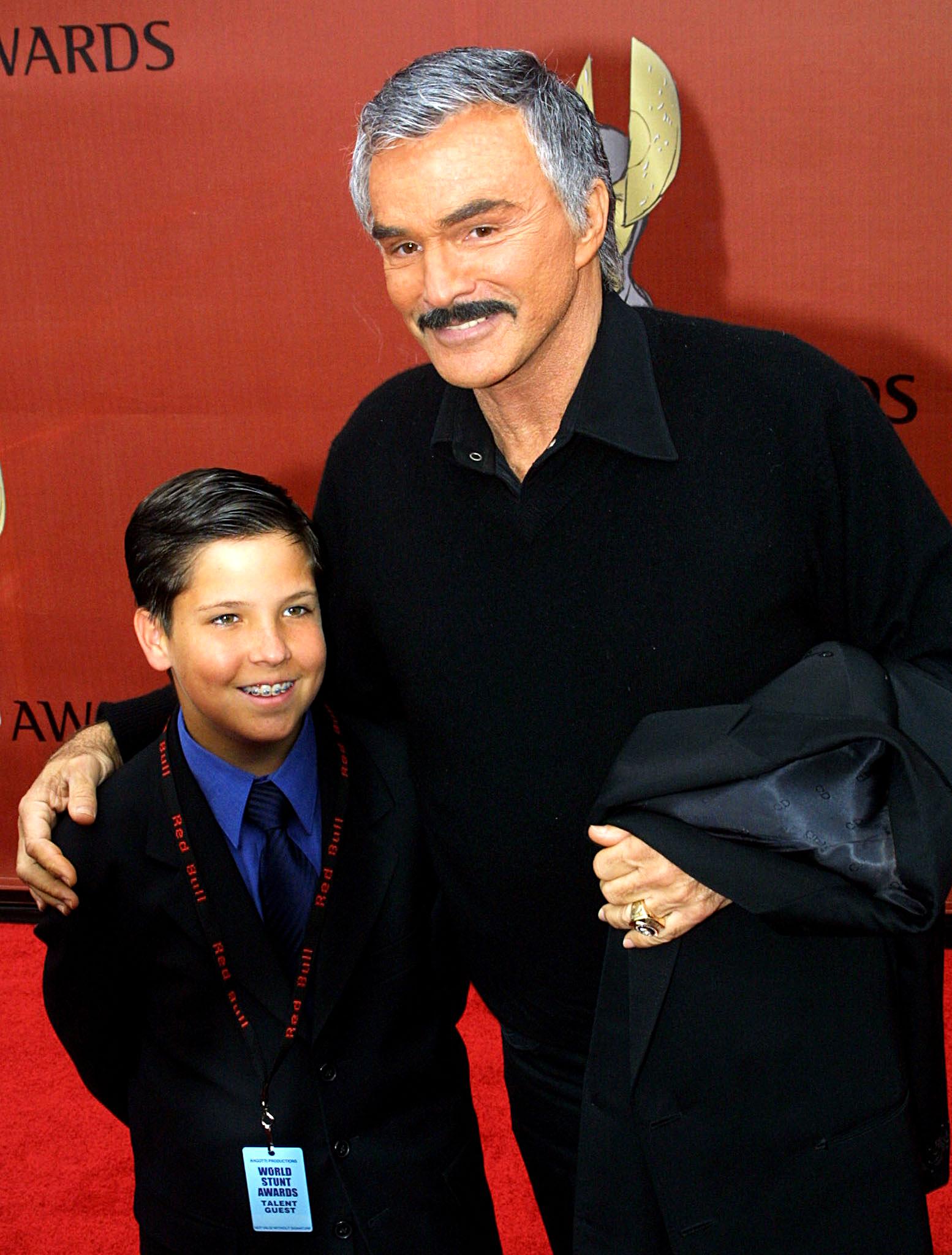
Burt Reynolds and his son attend the First International World Stunt Awards, on May 20, 2001 | Source: Getty Images
Quinton Reynolds—Burt’s Greatest Achievement
Though Burt enjoyed a long and illustrious career in Hollywood, he often said that his proudest accomplishment wasn’t found on screen. It was his son,
Quinton Anderson Reynolds
. Quinton, now 36, was adopted by Burt and his second wife, Loni, shortly after his birth.
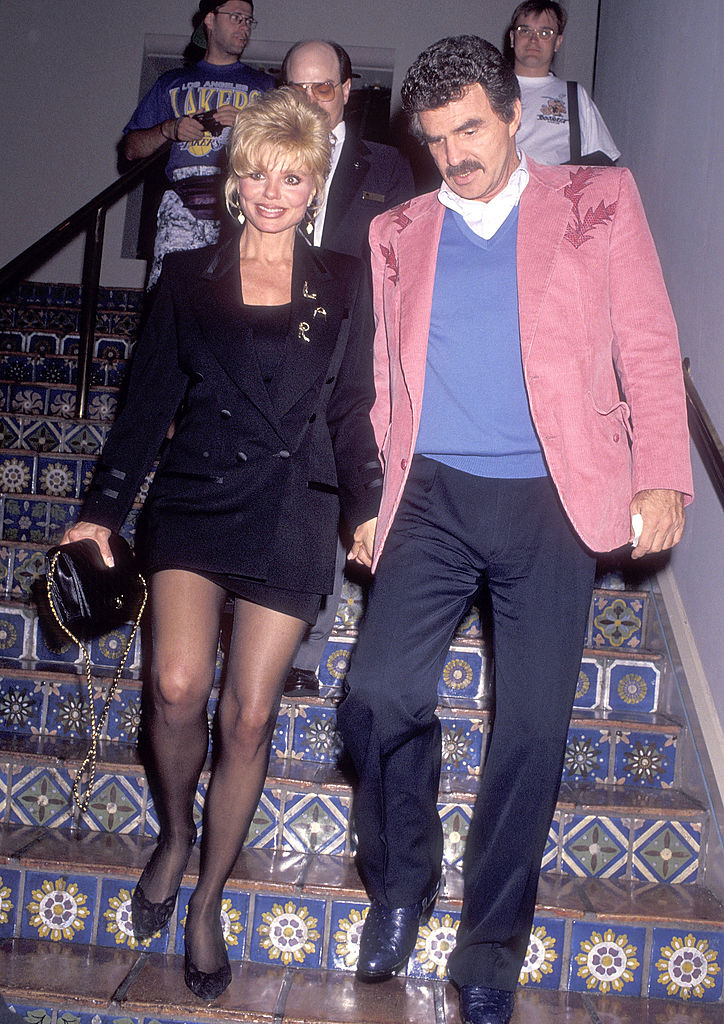
Loni Anderson and Burt Reynolds | Source: Getty Images
Burt never hesitated to express how much his son meant to him. Shortly before his passing, Burt called Quinton “my greatest achievement,”
adding
, “He’s a wonderful young man and is now working as a camera assistant in Hollywood.”
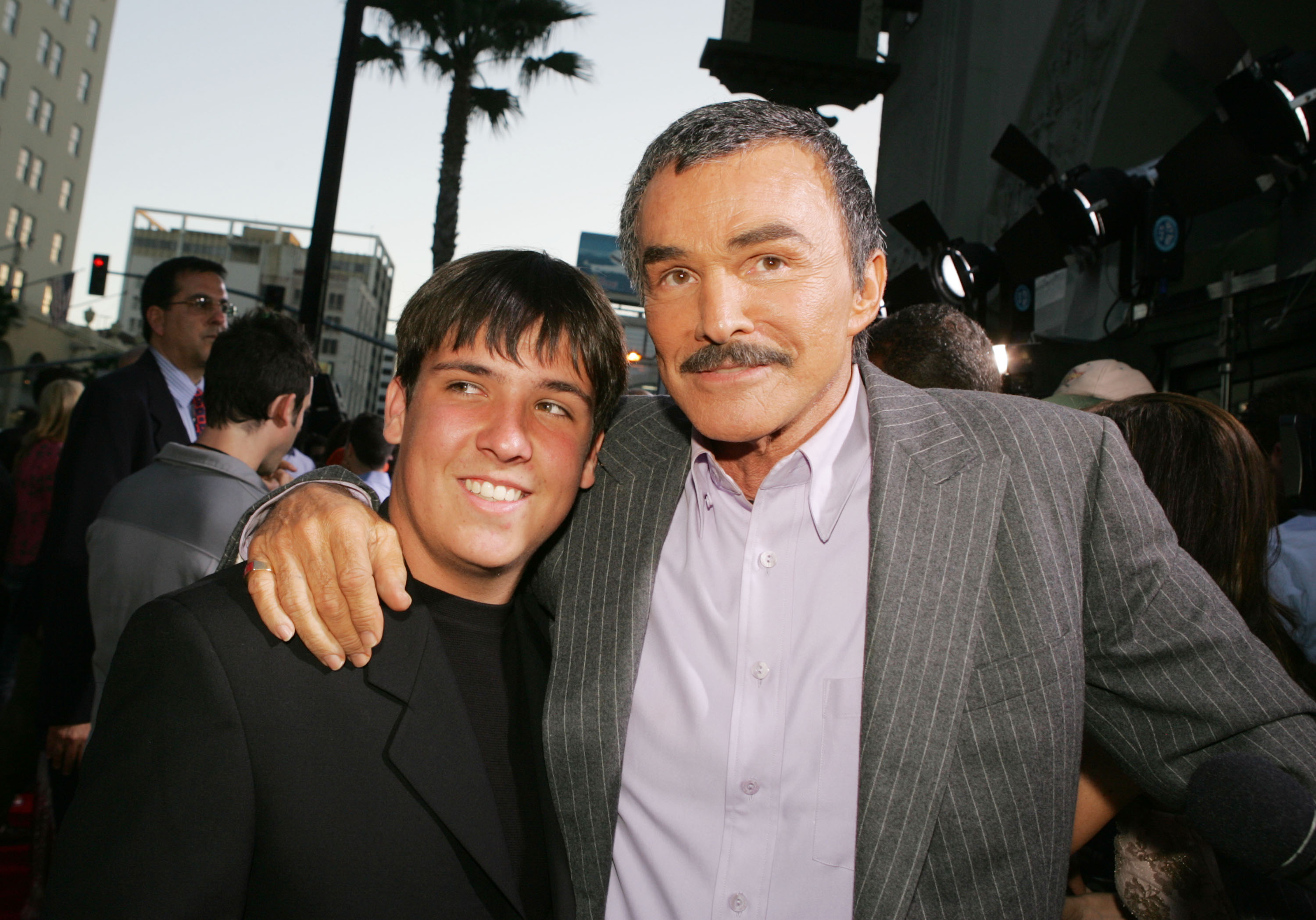
Quinton and Burt Reynolds attend “The Longest Yard” premier, on May 19, 2005 | Source: Getty Images
The relationship between father and son, however, was not without its challenges. Following
Burt’s highly publicized divorce
from Loni in 1993, Quinton’s upbringing was largely under his mother’s care. Burt openly reflected on how difficult it was to lose custody of Quinton, revealing that the separation strained their bond.
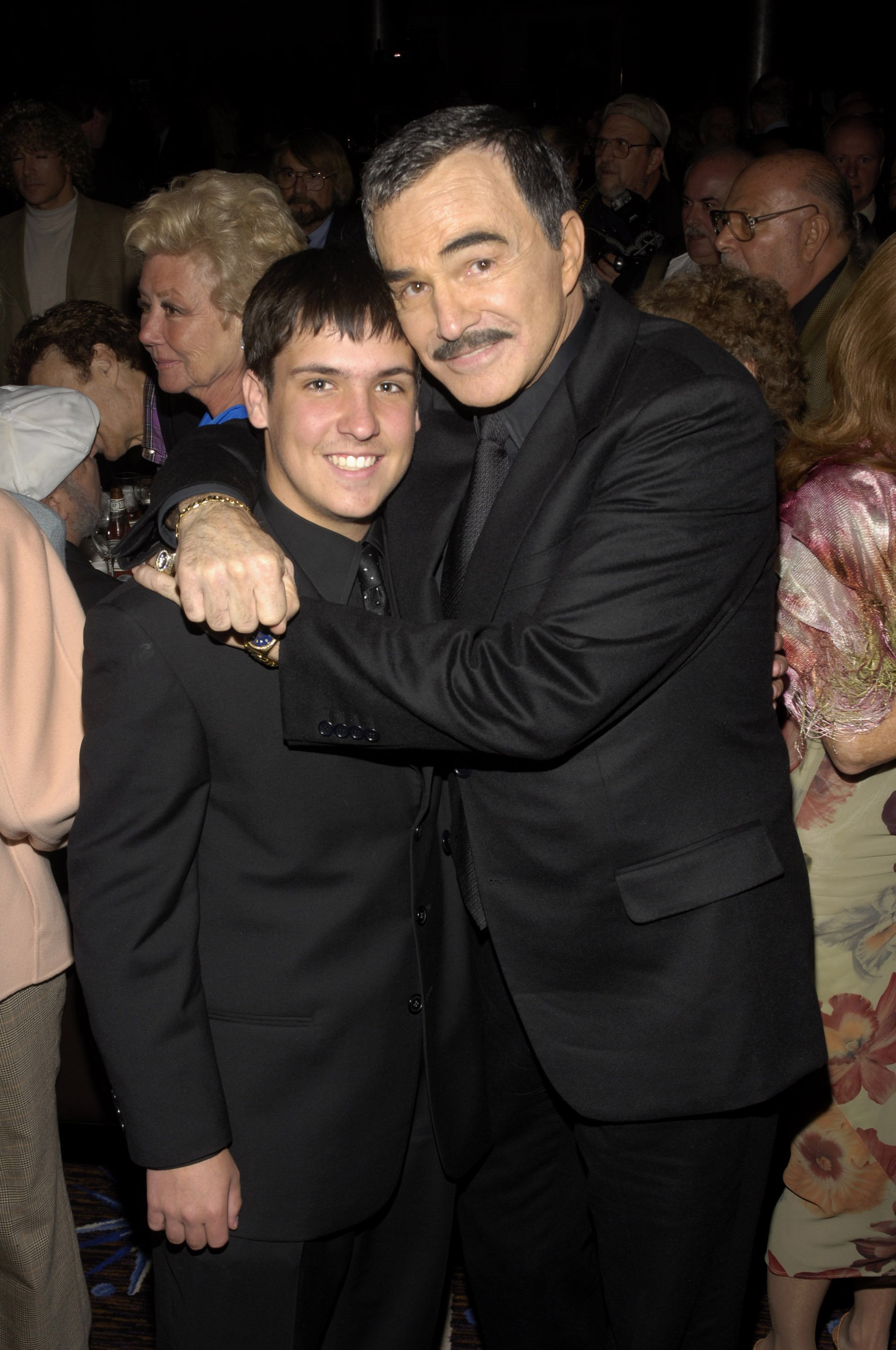
Quinton and Burt Reynolds in Los Angeles, California in 2005 | Source: Getty Images
“He was only six when we split up… I think he’s heard some things from his mother that weren’t great about me,” Burt
shared
. Despite the difficulties, he remained determined to be a loving father, ensuring Quinton knew how much he was loved. Over time, the two reconnected and developed a closer relationship.
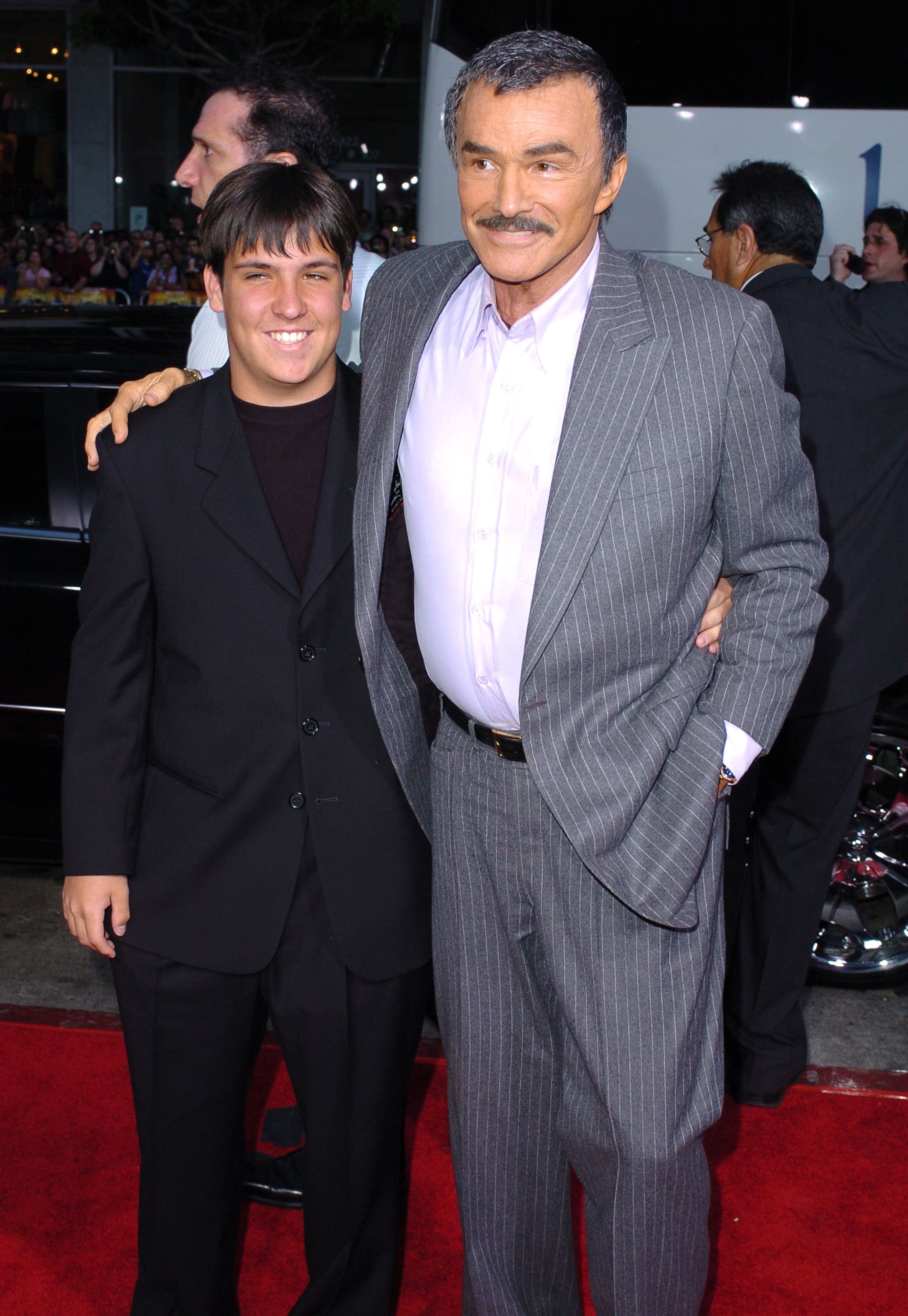
Quinton and Burt Reynolds during “The Longest Yard” Los Angeles premiere, on May 19, 2005 | Source: Getty Images
Quinton pursued his own career in the film industry, working behind the camera on
projects like
“Ouija: Origin of Evil” (2016) and “Tales of Halloween” (2015). Burt admired his son’s independence and work ethic, often praising him for building a career without leaning on his father’s fame.
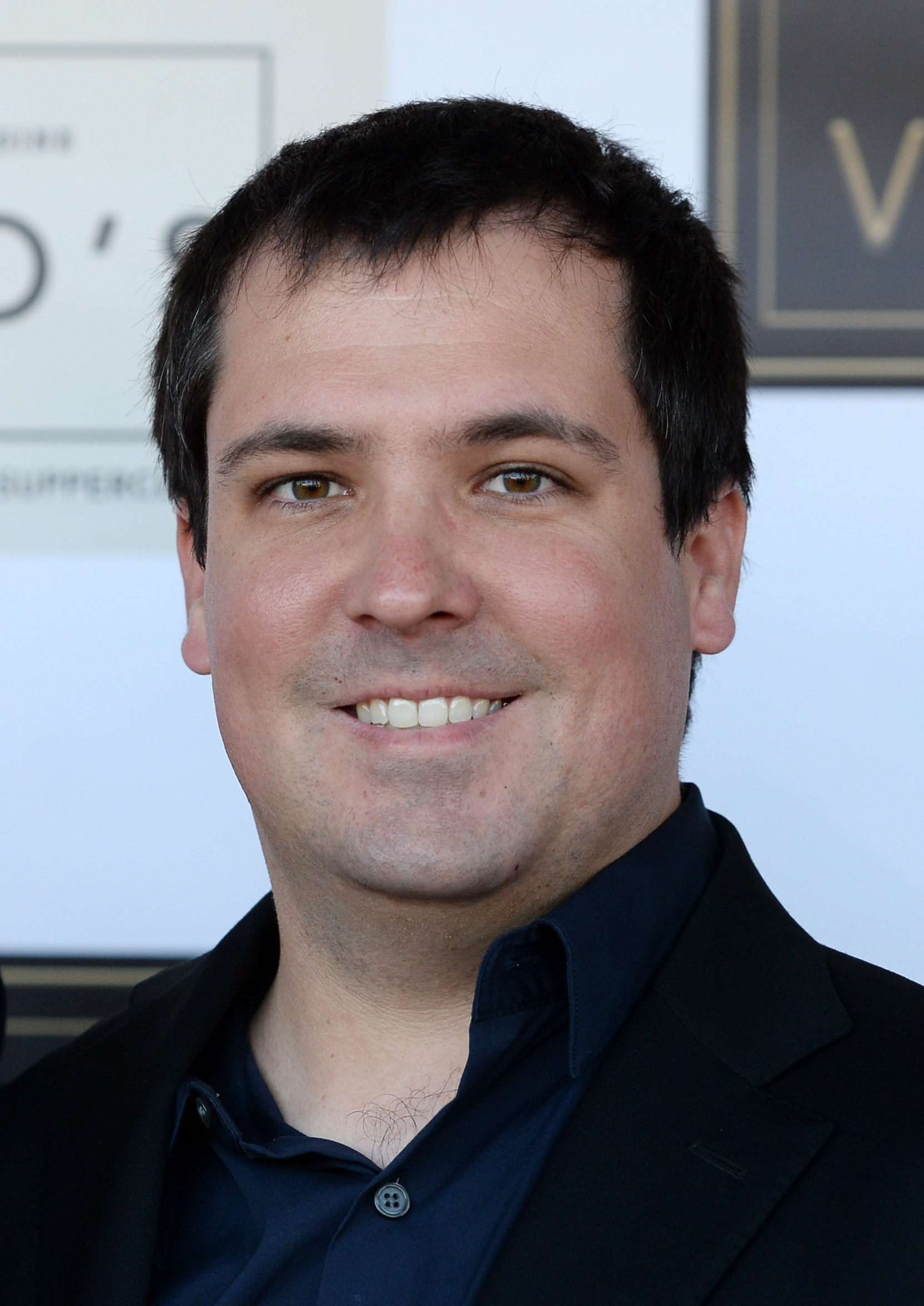
Quinton Anderson Reynolds photographed on June 13, 2019 | Source: Getty Images
“He never asked for any help with his career—he did it all himself, and I’m so proud of him,” he
stated
. Their relationship may not have been perfect, but Burt’s deep love and pride for Quinton were evident, making his estate decisions all the more intriguing.
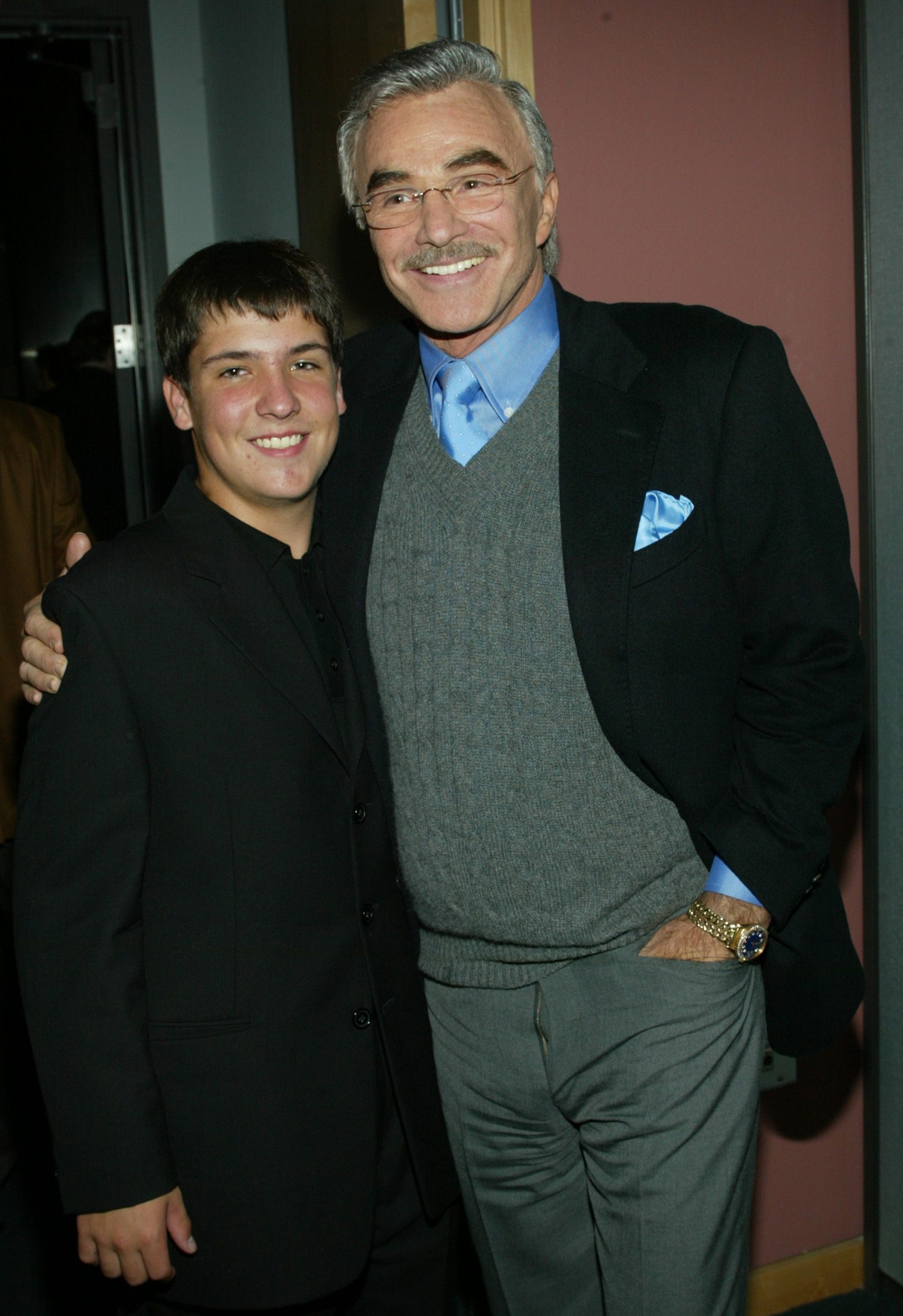
Quinton and Burt Reynolds attend the Fourth Annual Actors’ Fund of America Gala in 2003 | Source: Getty Images
The Decision to Exclude Quinton from the Will
In 2018, Burt
passed away
at the age of 82, leaving behind a legacy of iconic performances—and an estate that sparked curiosity. When his will was made public, it contained a surprising revelation: Burt had deliberately left his only son, Quinton, out of it.
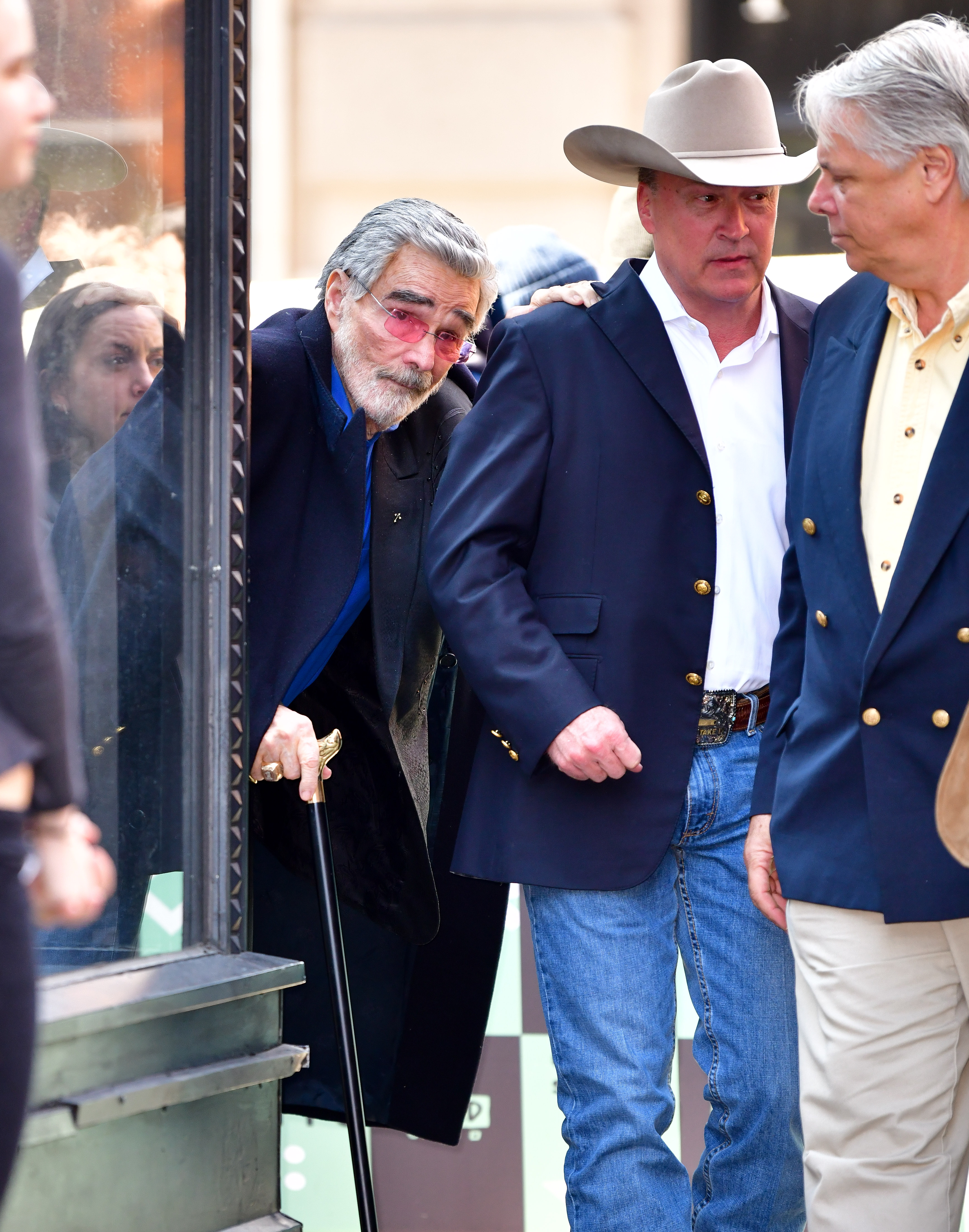
Burt Reynolds in New York in 2018 | Source: Getty Images
At first glance, the decision seemed puzzling, given the actor’s well-known love and pride for Quinton. But
a closer look
revealed that this move was more about financial planning than rejection. The will specified that Quinton was intentionally omitted, but not disinherited.
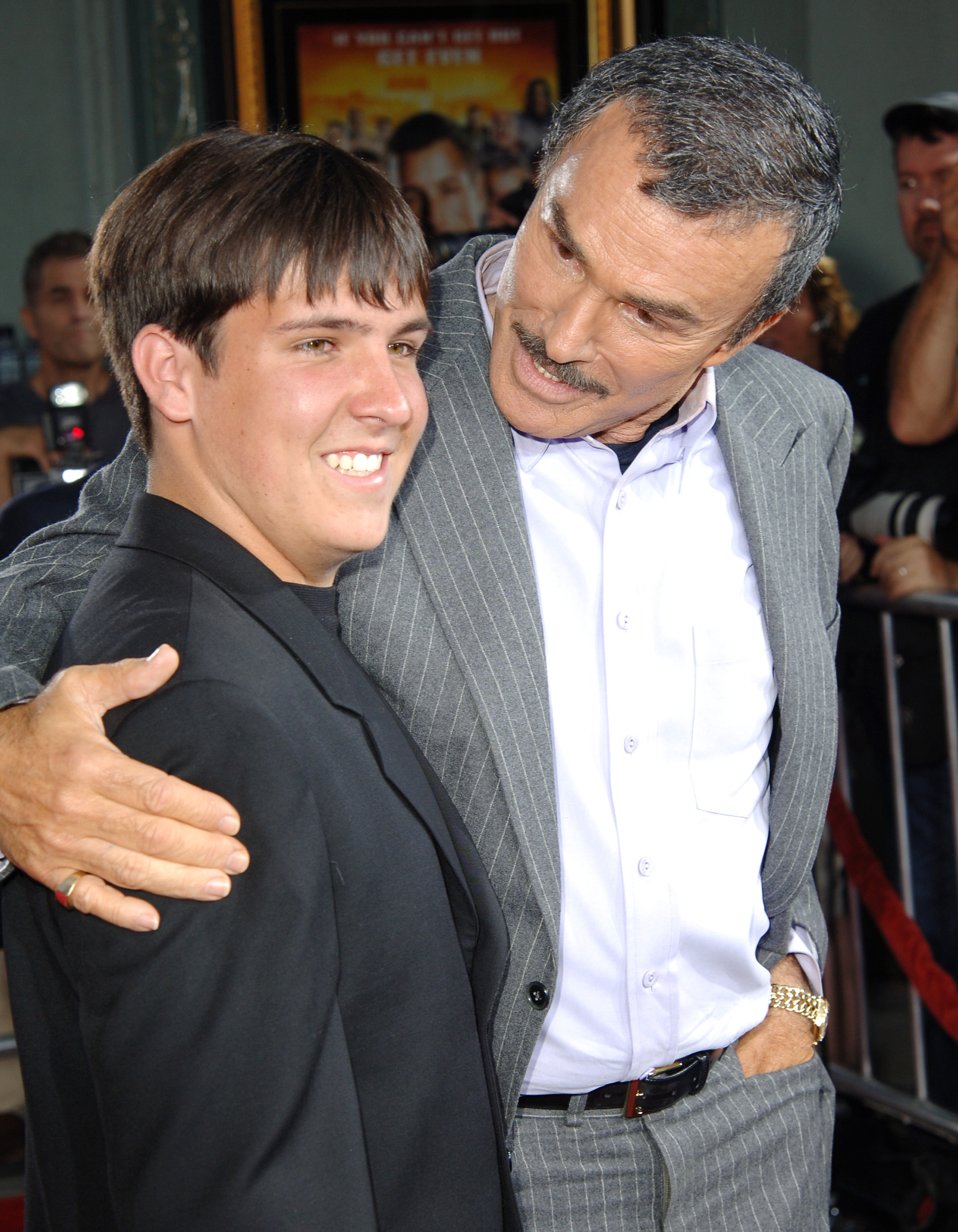
Quinton and Burt Reynolds during “The Longest Yard” Los Angeles premiere, on May 19, 2005 | Source: Getty Images
Years earlier, Burt had established a trust for his son’s benefit, ensuring that Quinton would be taken care of without complications. This strategy allowed Burt to avoid potential estate taxes, funneling his assets directly through the trust. Since the trust was already in place, the will served as more of a formal document, covering any loose ends not included in the trust.
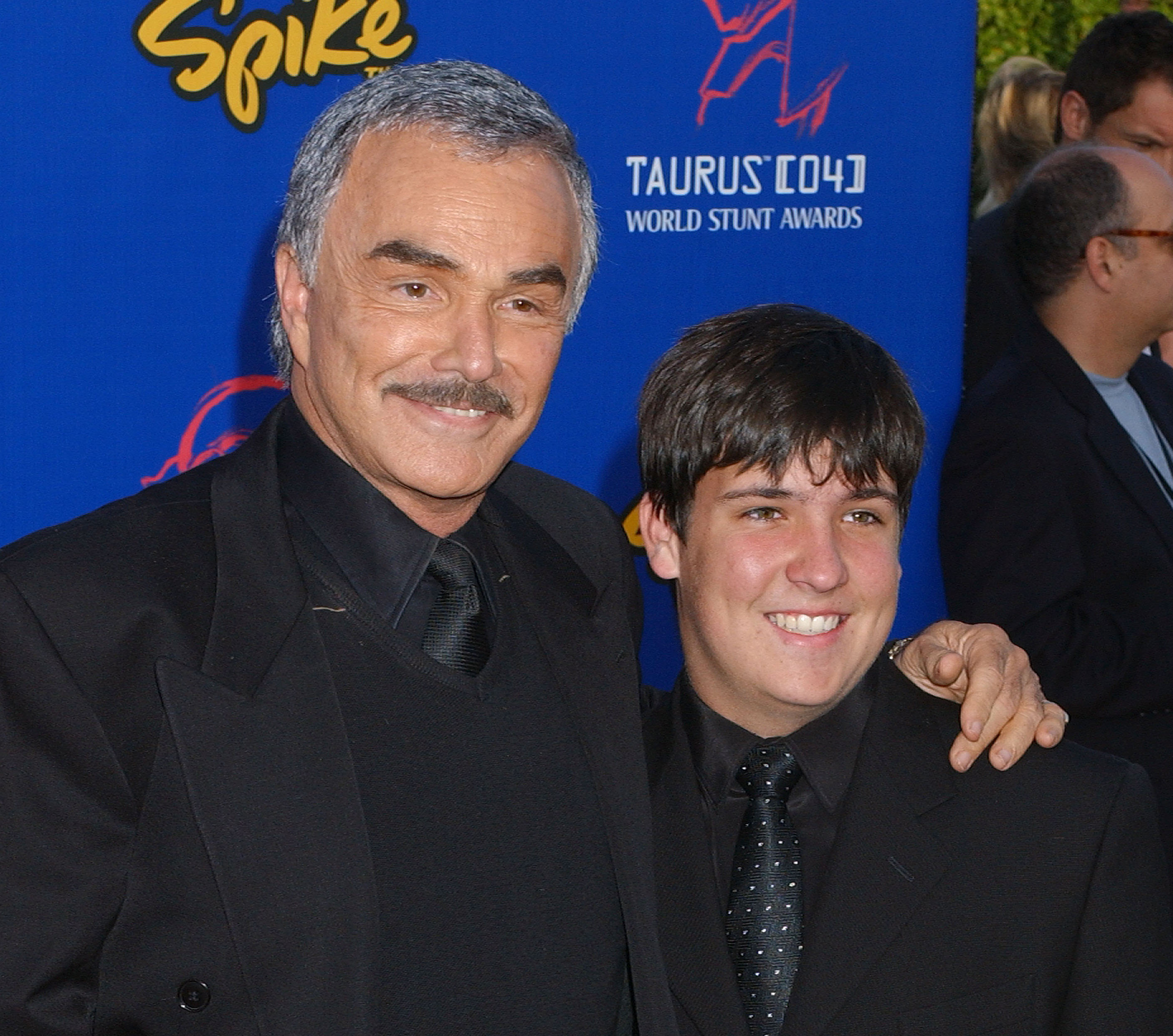
Burt and Quinton Reynolds during 4th Annual Taurus World Stunt Awards, on May 16, 2004 | Source: Getty Images
Another unexpected detail in the will was the appointment of Burt’s niece, Nancy, as the trustee. While it may have raised some eyebrows that Quinton was not given control of the trust, the decision was likely a practical one—keeping Quinton, as the primary beneficiary, from facing a potential conflict of interest.
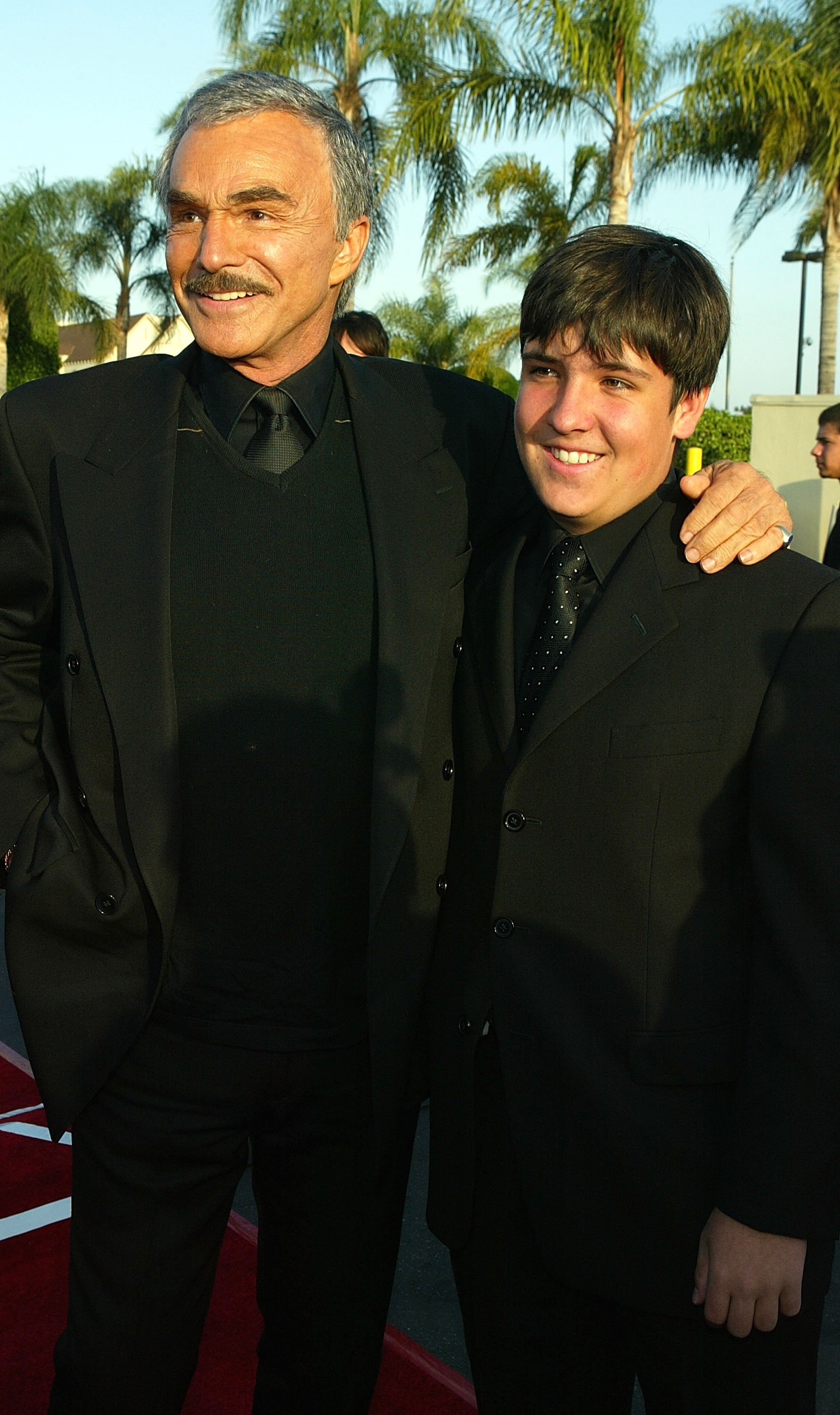
Burt and Quinton Reynolds during the 4th Annual Taurus World Stunt Awards on May 16, 2004 | Source: Getty Images
Nancy, who described Burt as a generous and sensitive man, took on the responsibility with care. In
her statement
following his death, she expressed gratitude for the outpouring of love from fans and friends, asking for privacy as the family navigated their loss.
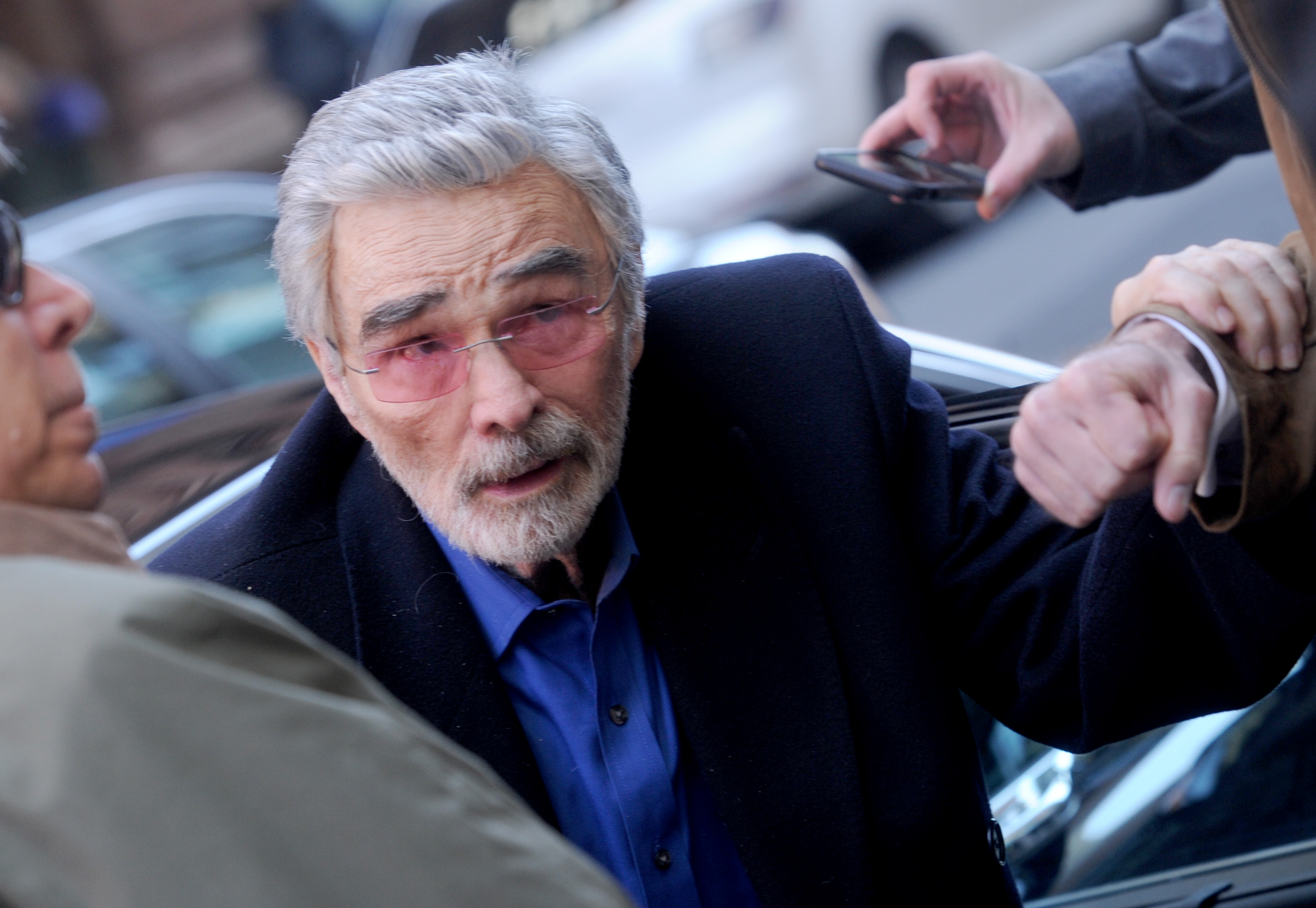
Director Burt Reynolds photographed on March 15, 2018 in New York City | Source: Getty Images
Far from an act of neglect, Burt’s estate plan reflected a thoughtful attempt to protect his son’s future. Though his decision to omit Quinton from the will seemed surprising on the surface, it was a strategic move, rooted in love and a desire to secure his son’s financial stability.

